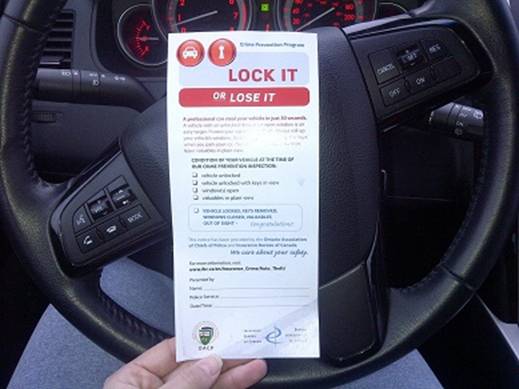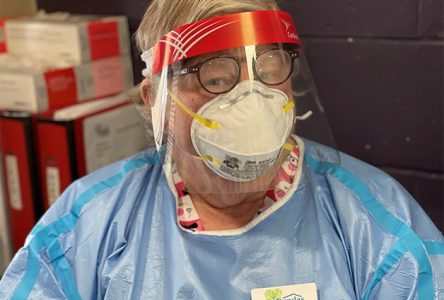CORNWALL, Ontario – Cornwall and SD&G police officers are testing vehicles for easy access, hoping to keep drivers from becoming a thief’s easy target.
The Cornwall Community Police Service and Stormont-Dundas-Glengarry Ontario Provincial Police are participating in the province-wide campaign, ‘Lock It Or Lose It,’ warning motorists about the dangers of property and identity theft.
Over the next few months – and throughout the holidays – officers check parked vehicles to see if they’re secured and if valuables have been left in plain view.
“They’re also looking for anything in a vehicle that allows them to engage in identity theft,” said CCPS Sgt. Brian Snyder. “Keep anything with your personal information with you.”
Vehicle owners who don’t lock it are greeted with an educational pamphlet on their windshield, indicating what safety precautions were neglected, with some simple prevention tips.
“It’s not a ticket,” said CCPS Sgt. Daniel Doyon. “We want drivers to be aware to prevent them from being victimized.”
Rick Dubin, vice-president of investigative services at the Insurance Bureau of Canada, says the insurance industry remains a strong supporter of the campaign.
“We know it works,” said Dubin.
According to IBC, cases of identity theft and fraud increased across Canada from 10,807 to 11,594 in 2013 – a 6 per cent increase. In addition, about half of all stolen vehicles are used to commit another crime or are driven – often recklessly – for simple purposes of transportation (destination theft).
Motorists are urged not to keep personal documents such as vehicle ownership, liability pink slips, credit card invoices, or other documents containing personal information in their vehicles; oll up their vehicles’ windows; and pocket their keys.
“Auto theft costs Canadians more than $1 billion every year,” said Dubin.
The campaign is also sponsored by the Ontario Association of Chiefs of Police (OACP).




